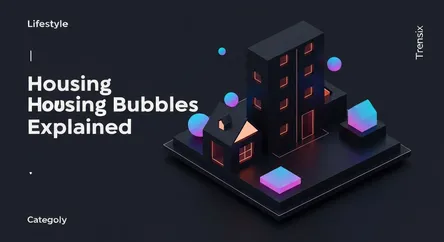Lifestyle
Housing Bubbles Explained

Learn what a housing bubble is, why it's a hot topic, and the serious financial impact it can have on homeowners and the economy when it bursts.
What is it?
A housing bubble is an economic phenomenon where the prices of residential real estate escalate rapidly to unsustainable levels. This surge is typically driven by high demand, rampant speculation, and easy credit, rather than fundamental economic factors. Buyers purchase properties expecting prices to continue rising, further inflating the market. Eventually, demand wanes or supply increases, causing a sharp and sudden drop in prices—the bubble 'bursts.' This correction can be severe, leaving many assets worth significantly less than their peak value.
Why is it trending?
Concerns about a housing bubble are trending due to the dramatic rise in home prices seen across many global markets, fueled by low interest rates and a pandemic-driven shift in housing needs. Now, with central banks raising interest rates to combat inflation, borrowing has become more expensive. This shift cools buyer demand and raises fears that the inflated prices are no longer sustainable, leading many to search for signs of an impending market correction or crash.
How does it affect people?
When a housing bubble bursts, it can have devastating effects. Homeowners may find themselves in 'negative equity,' owing more on their mortgage than their home is worth. This makes it difficult to sell or refinance and can lead to a wave of foreclosures. The broader economy also suffers, as the loss of household wealth reduces consumer spending. Construction activity often grinds to a halt, leading to job losses in related industries and potentially triggering a wider economic recession.